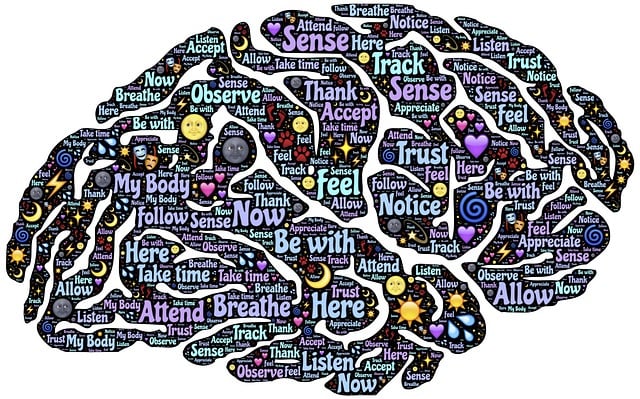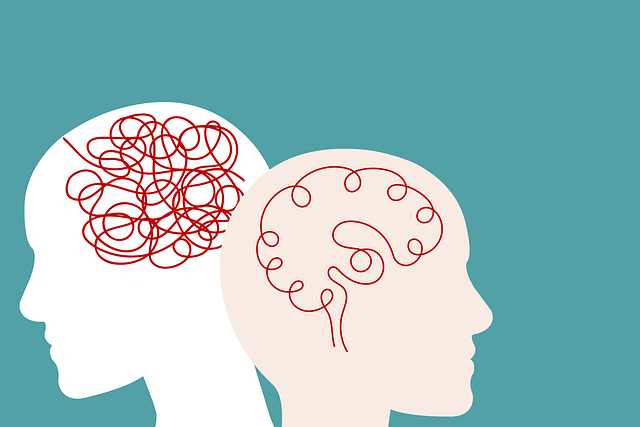Children with autism spectrum disorder (ASD) can greatly benefit from incorporating self-care practices into their daily routines, which are crucial for emotional resilience, social interactions, and independence. Early interventions through therapies like applied behavior analysis (ABA) and speech therapy teach coping mechanisms and self-regulation skills. Techniques such as mindfulness meditation and emotional regulation strategies enhance confidence, improve sensory management, and foster better communication. Tailored risk management planning, along with structured education initiatives and mental wellness coaching, ensures comprehensive care for young ASD individuals, focusing on effective Therapy for Young Children with Autism Spectrum Disorder.
Self-care is an essential aspect of holistic well-being, especially for young children with Autism Spectrum Disorder (ASD). This article explores the critical role it plays in their development and offers a comprehensive guide. We delve into understanding the unique self-care needs of children with ASD, emphasizing individualized approaches. It provides practical strategies to integrate self-care into daily routines, empowering parents and therapists to foster long-term mental health. By recognizing and addressing these needs, we can enhance the lives of young minds on the spectrum through tailored therapy and support.
- Understanding the Importance of Self-Care for Children with ASD
- Identifying Individualized Self-Care Needs in Young Minds
- Practical Strategies for Integrating Self-Care into Daily Routines
- The Role of Parents and Therapists in Promoting Long-Term Well-being
Understanding the Importance of Self-Care for Children with ASD

Children with Autism Spectrum Disorder (ASD) often face unique challenges that can impact their overall well-being. Incorporating self-care practices into their daily routines is not just beneficial but essential for their growth and development. Understanding the importance of self-care for these young individuals goes beyond ensuring physical health; it’s about fostering emotional resilience, enhancing social interactions, and promoting independence.
Early intervention through therapy, such as applied behavior analysis or speech therapy, can play a pivotal role in teaching children with ASD coping mechanisms and self-regulation skills. Techniques like mindfulness meditation and emotional regulation strategies can be powerful tools to boost their confidence and sense of control. These practices not only help them manage sensory sensitivities but also encourage a deeper understanding of their emotions, fostering better communication and social connections.
Identifying Individualized Self-Care Needs in Young Minds

Recognizing individual self-care needs is paramount when nurturing the mental wellness of young minds, especially those on the autism spectrum. Each child’s experience and requirements are unique; therefore, tailored interventions are essential for optimal development. Therapy for young children with Autism Spectrum Disorder (ASD) often involves a multifaceted approach, addressing social interactions, communication skills, and sensory processing challenges.
Mental wellness coaching programs designed specifically for this demographic can empower them to develop healthy coping mechanisms. These programs, alongside well-structured mental health education initiatives, teach self-awareness and emotional regulation strategies. In light of the importance of risk management planning for mental health professionals, creating safe and supportive environments becomes crucial. By integrating these various components, we can ensure that young individuals with ASD receive comprehensive care tailored to their distinct needs.
Practical Strategies for Integrating Self-Care into Daily Routines

Integrating self-care into daily routines is essential for maintaining mental wellness, especially for individuals with Autism Spectrum Disorder (ASD). Start by identifying personal needs and preferences; this could involve reading, engaging in creative outlets like art or music, or practicing mindfulness through meditation or deep breathing exercises. Incorporate these activities into established routines—morning routines, for instance, can include gentle stretching or a short mental wellness podcast series episode to set a calm tone for the day.
Consider structured approaches such as Social Skills Training and Conflict Resolution Techniques to enhance social interactions and reduce stress. These strategies can be tailored to individual needs and integrated seamlessly into daily life. Regular therapy sessions, whether in-person or online, can provide valuable tools for self-regulation and emotional management. Remember, consistent practice is key; even short dedicated moments for self-care each day can make a significant difference in overall well-being.
The Role of Parents and Therapists in Promoting Long-Term Well-being

Parents and therapists play a pivotal role in promoting long-term well-being for children with Autism Spectrum Disorder (ASD). Early intervention through therapy can significantly impact a child’s development, providing them with essential skills to navigate social interactions and manage sensory sensitivities. Therapists employ various techniques, such as Applied Behavior Analysis (ABA) and speech therapy, to enhance communication, reduce challenging behaviors, and improve emotional regulation.
In the home environment, parents are powerful allies in continuing these therapeutic practices. They can foster Anxiety Relief and Stress Management by creating structured routines, providing clear expectations, and offering safe spaces for their children to express emotions. By incorporating Emotional Well-being Promotion Techniques into daily activities, such as mindfulness exercises or engaging in calming sensory activities, parents contribute to their child’s overall resilience and ability to cope with life’s demands. This collaborative effort between parents and therapists ensures a holistic approach to supporting the long-term growth and happiness of children with ASD.
Self-care practices play a pivotal role in fostering the well-being of young children on the autism spectrum. By understanding their unique needs, identifying individualized strategies, and implementing practical solutions, parents and therapists can significantly enhance their quality of life. Through dedicated efforts, we can promote long-term resilience and enable these children to navigate their world with greater ease and confidence, ultimately revolutionizing their journey through therapy for young children with autism spectrum disorder.














